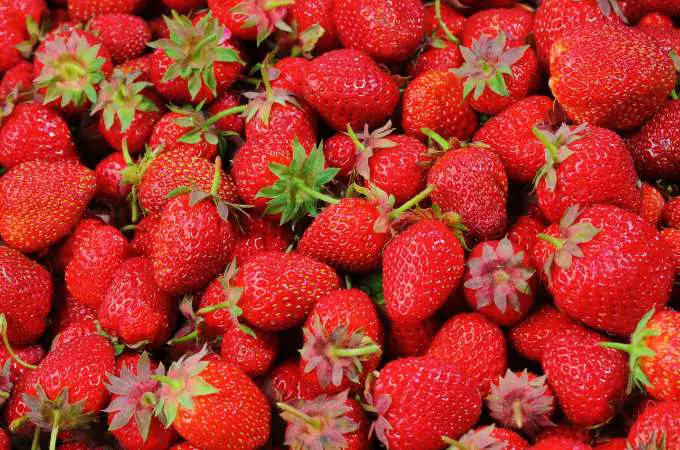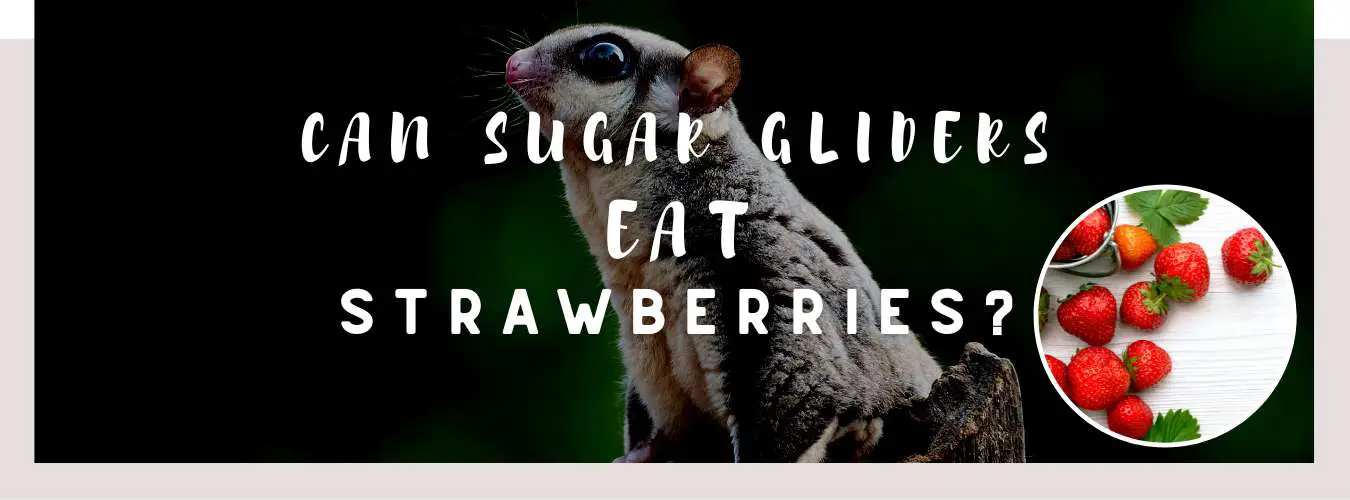
Sugar gliders, the small, nocturnal marsupials that have charmed their way into many pet lovers’ hearts, have specific dietary needs that must be carefully considered. A common question among sugar glider enthusiasts is: “Can sugar gliders eat strawberries?” This article aims to provide a comprehensive understanding of the role strawberries can play in a sugar glider’s diet, discussing their nutritional benefits, potential risks, and guidelines for safe consumption.
Nutritional Profile of Strawberries for Sugar Gliders
Strawberries are not just a delightful treat for humans; they also offer several nutritional benefits that can be advantageous for sugar gliders.
Vitamins and Antioxidants
Strawberries are an excellent source of Vitamin C, which is crucial for a healthy immune system. They also contain antioxidants that help in protecting cells from oxidative stress.
Natural Sugars and Energy
As a fruit, strawberries have natural sugars, providing a quick source of energy. This makes them a suitable, occasional treat for active sugar gliders.
Fiber for Digestive Health
Strawberries contain dietary fiber, aiding in digestive health and helping to prevent issues like constipation in sugar gliders.
Risks Associated with Strawberries in a Sugar Glider’s Diet
While strawberries can be a healthy addition to a sugar glider’s diet, there are certain risks that should be considered.
Sugar Content and Obesity
Despite their benefits, the sugar content in strawberries can lead to obesity and related health issues if overfed.
Pesticides and Chemicals
Strawberries are often exposed to pesticides, which can be harmful to sugar gliders. Opting for organic strawberries and washing them thoroughly is advised to reduce these risks.
You might also like: Can Sugar Gliders Eat Bananas?

Preparing Strawberries for Sugar Gliders
Proper preparation of strawberries is key to safely incorporating them into a sugar glider’s diet.
Thoroughly wash strawberries to remove any pesticide residue. Cut them into small, manageable pieces to make them easier for sugar gliders to eat and to prevent choking hazards.
Strawberries should be offered in moderation, as an occasional treat rather than a staple part of the diet. A small piece or two is enough.
Dietary Alternatives and Variety
Diversity in a sugar glider’s diet is essential for providing a range of nutrients and preventing boredom.
Besides strawberries, other fruits like apples, pears, and melons can be safely included in their diet. These offer different vitamins and minerals and help maintain a balanced diet.
Providing a variety of fruits and vegetables ensures a balanced intake of nutrients and reduces the risk of nutritional deficiencies.
Monitoring Your Sugar Glider’s Health
Observing your sugar glider’s health after introducing strawberries or any new food is vital.
Look out for any signs of allergic reactions or digestive issues after feeding strawberries. If such symptoms occur, remove strawberries from their diet and consult a veterinarian.
Routine veterinary checkups can help monitor the impact of dietary changes on your sugar glider’s health, ensuring they maintain a balanced diet.
Variety of Strawberries
There are various types of strawberries, such as June-bearing, everbearing, and day-neutral. While these types mainly differ in their growing seasons and size, they are nutritionally similar. However, smaller strawberries might be easier for sugar gliders to handle and eat.
You might also like: What Can Sugar Gliders Eat?
The Role of Vitamin K and Manganese

In addition to Vitamin C and antioxidants, strawberries also provide small amounts of Vitamin K, which is important for blood clotting and bone health, and manganese, which plays a role in bone formation and energy metabolism.
Organic vs. Non-Organic Strawberries
The emphasis on choosing organic strawberries is due to their lower likelihood of pesticide exposure. Non-organic strawberries are often listed among fruits with high pesticide residues, which could be more harmful to small pets like sugar gliders.
Integrating Strawberries into a Balanced Diet
Incorporating strawberries into a sugar glider’s diet should be done thoughtfully to maintain dietary balance.
Combining strawberries with other fruits and vegetables can provide a more nutritionally diverse and enticing meal. For instance, mixing strawberries with leafy greens or melon can balance the meal’s sugar content with other nutrients.
While strawberries are nutritious, their portion should be limited to avoid excess sugar intake. One or two small pieces per serving are sufficient, and they should not be offered daily.
Adjusting Diet Based on Health Conditions
If a sugar glider has health issues like diabetes or is prone to obesity, further reduce the frequency or portion size of strawberries in their diet. Consulting with a veterinarian for personalized dietary advice is always recommended.
Addressing Potential Health Concerns
It’s crucial to be aware of the signs that indicate whether strawberries are suitable for your sugar glider.
Regular weight checks and, if possible, blood sugar monitoring can help identify any adverse effects of strawberries on your sugar glider’s health.
While rare, sugar gliders can have sensitivities or allergies to certain foods, including strawberries. Signs of an allergic reaction may include itching, swelling, or gastrointestinal discomfort.
Hydration and Water Content in Strawberries
Strawberries have high water content, which can contribute to the hydration needs of sugar gliders. However, they should not replace a sugar glider’s need for fresh, clean water.
Incorporating hydrating foods like strawberries can complement a sugar glider’s fluid intake, but it’s essential to ensure they have continuous access to water.
Final Thoughts
Incorporating strawberries into a sugar glider’s diet can offer both nutritional benefits and enjoyment. By understanding the specific nutritional content of strawberries, practicing appropriate feeding techniques, and monitoring the sugar glider’s health response, owners can safely include this fruit in their pet’s diet. Moderation, variety, and vigilance are key to ensuring that strawberries are a healthy and safe treat for sugar gliders. With careful consideration, strawberries can be a part of a balanced and enriching diet, contributing positively to the health and well-being of these unique pets.
Contents
- 1 Nutritional Profile of Strawberries for Sugar Gliders
- 2 Risks Associated with Strawberries in a Sugar Glider’s Diet
- 3 Preparing Strawberries for Sugar Gliders
- 4 Dietary Alternatives and Variety
- 5 Monitoring Your Sugar Glider’s Health
- 6 Variety of Strawberries
- 7 Integrating Strawberries into a Balanced Diet
- 8 Hydration and Water Content in Strawberries
- 9 Final Thoughts










